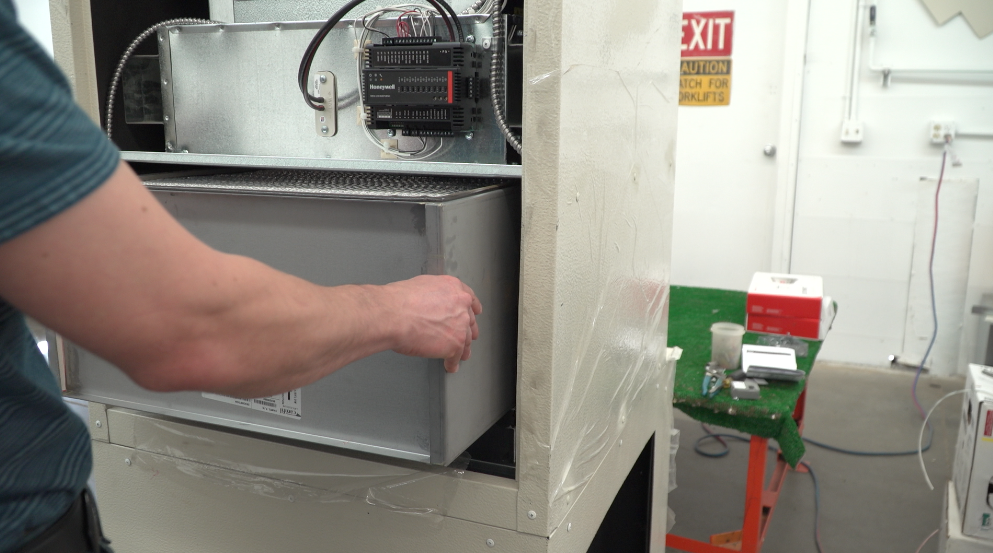Reasons Why to Invest in a HEPA Air Purifier
With eyes turned towards improving indoor air quality to help alleviate the spread of SARS-CoV-2, many are now asking about whether or not they should invest in a High-Efficiency Particulate Air (HEPA) filter to help their business open back up safely.
Industrial HEPA Filtration combined with Bipolar Ionization and UV Emitters
HEPA filter technology has long been recommended as a step to improving indoor air quality, being standardized at a minimum to be 99.97% efficient at removing air particles greater than or equal to 0.3 microns (μm) in size, which referring back to the blog on indoor air quality, means that it would catch the 5 micron particles that do considerable, if not permanent, damage to the delicate structures of the lungs. That means out of 1000 particles that are equal to or larger than 0.3 microns, 3 would get past the filter- that’s incredible! This is particularly remarkable because HEPA filters are rated at their minimum efficiency level (their bottom-line worst efficiency). The types of air particles that would be caught by the filter include, but not limited to, dander, mold spores, pet hair, pollen and other allergens, bacteria, and infectious droplets of pathogens such as viruses depending on the size. What’s even better is that our ISO-Aire™ HEPA air filters are 99.99% effective, being a top choice when selecting a commercial-grade air purifier that will keep all occupants safe.
ISO-Aire RSF Series - Recirculation Air Purification Systems
Numerous peer-reviewed scientific studies have tested the effectiveness of HEPA filters on the ability to capture air particles. Many have looked at such abilities to help mitigate health issues. One such study (Francis et al. 2003) found that asthma symptoms and treatment requirements were statistically better for a group of asthmatics with a HEPA filter than those without. A second study (Sulser et al. 2009) found similar results, with a significant decrease in nocturnal asthmatic symptoms in children with a HEPA filter than those with a fake HEPA filter.
Besides positive benefits for asthmatics, HEPA filters also help decrease the risk of cardiovascular problems by reducing the particle triggers that exacerbate cardiovascular disease (Brauner et al. 2008, Allen et al. 2011). One particular study (Weichenthal et al. 2013) found a significant improvement in blood pressure numbers for individuals with a HEPA filter.
In conclusion, installing a HEPA filter would help to collect airborne particles and improve health for all those who are within that space.

